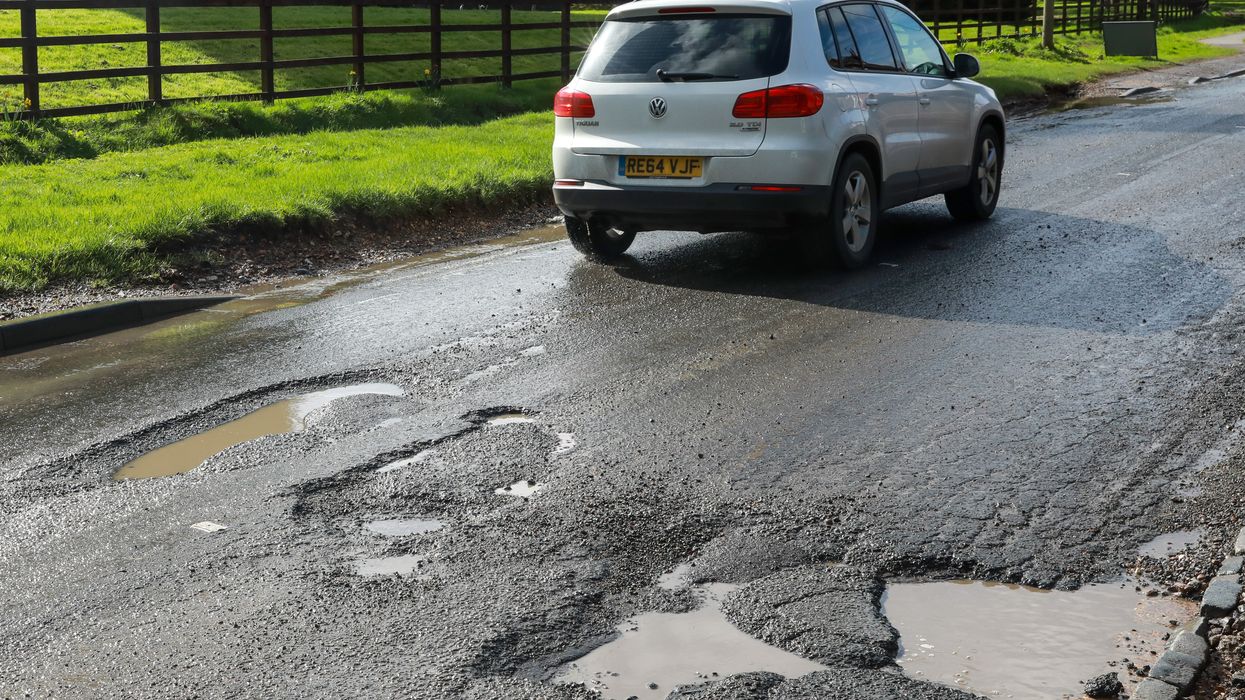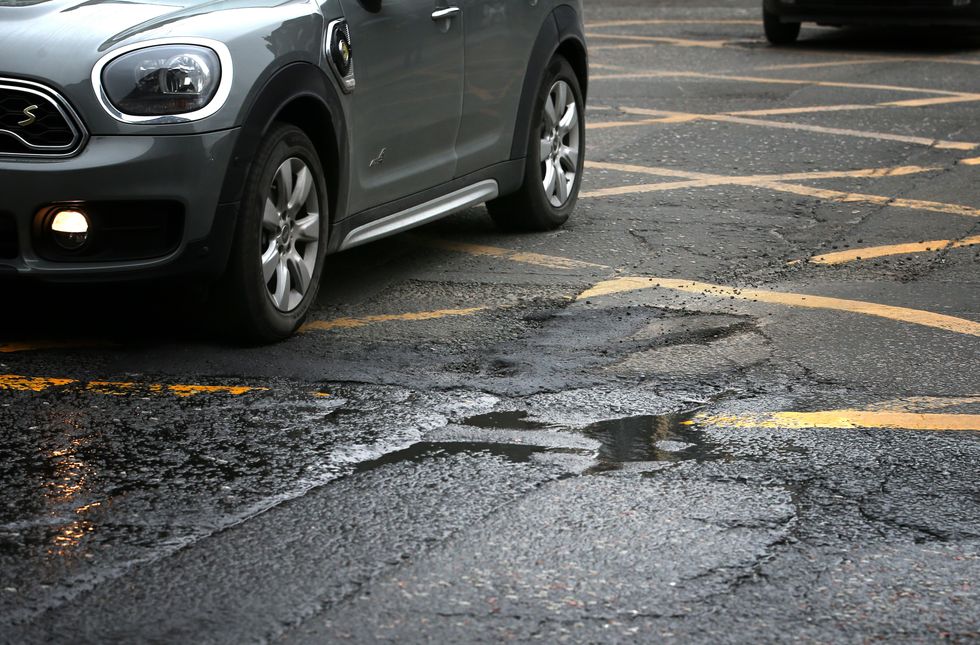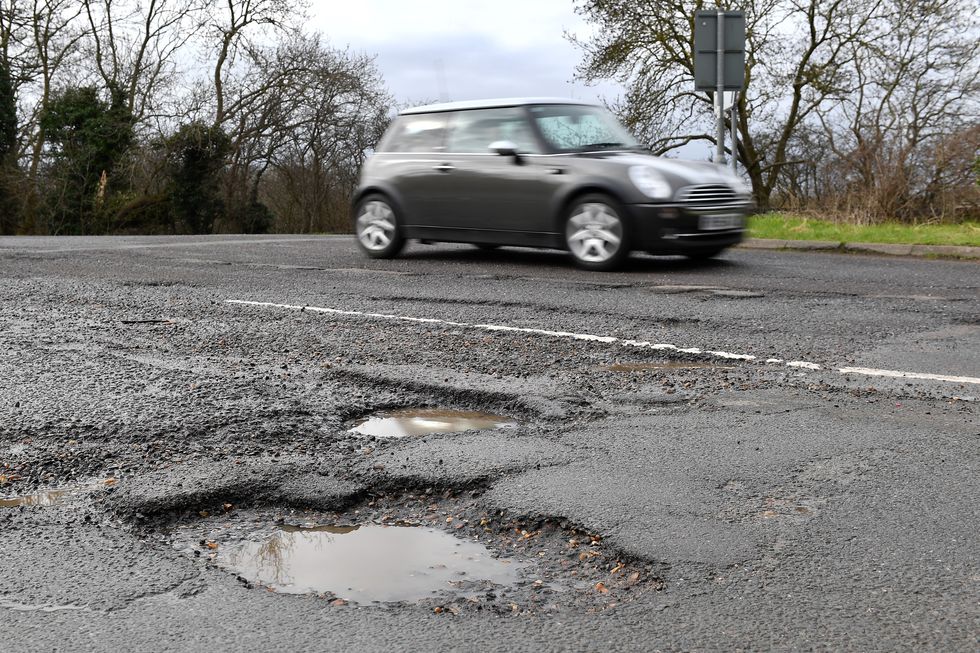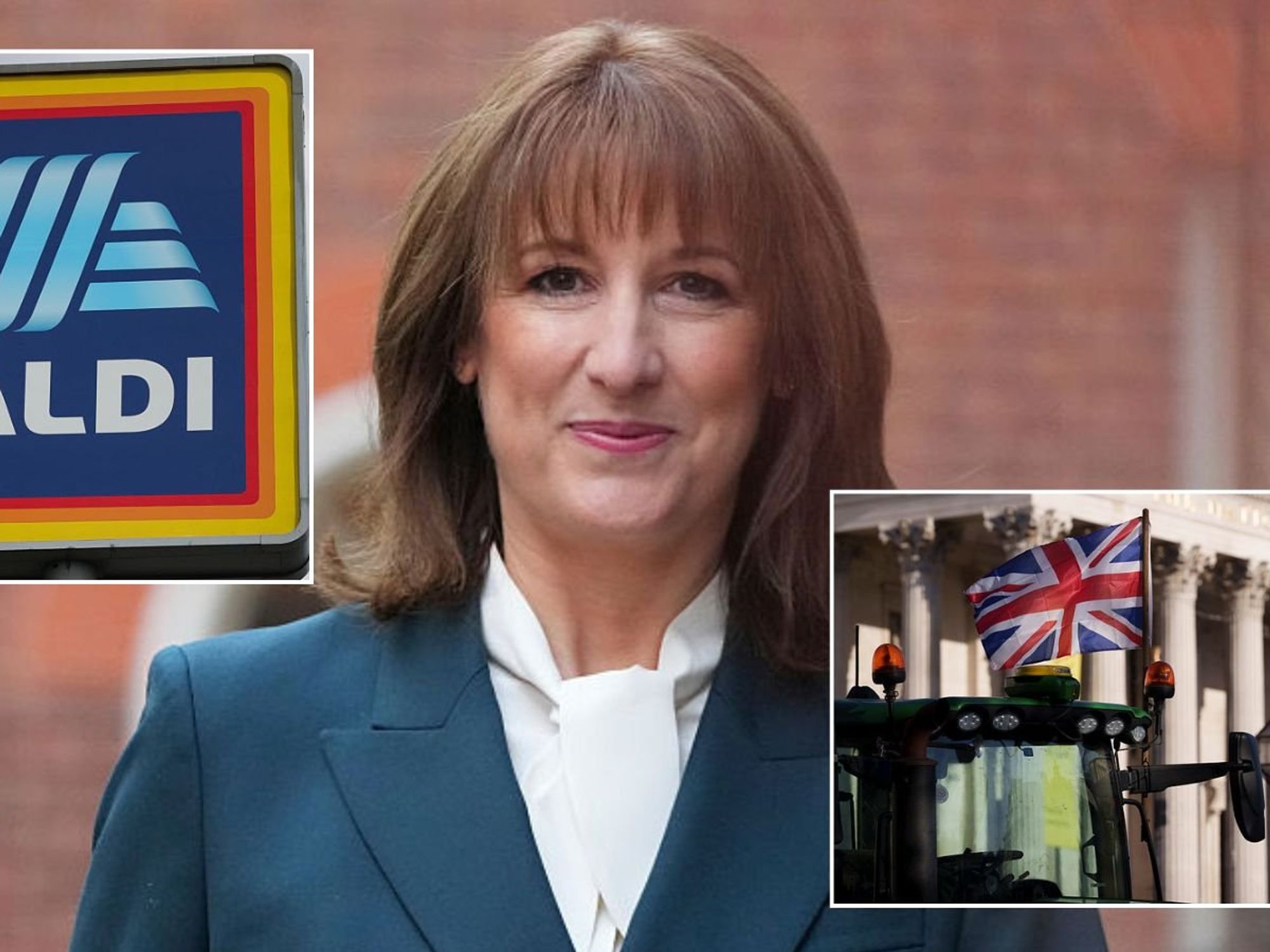UK road conditions worsen despite motorists paying billions in road tax for maintenance

Local authorities are dealing with around £16.3billion in road repairs
| GETTY
The majority of British motorists believe road conditions are worse than last year
Don't Miss
Most Read
Experts are warning motorists around the UK that their cars are at serious risk of being damaged as poor road conditions continue to blight millions of drivers.
Data from the RAC found that the decline of local roads is the second biggest frustration for drivers, behind their concerns about the cost of insurance. This comes despite drivers paying local authorities billions in road tax to help fund maintenance projects.
Almost three-quarters (73 per cent) of drivers thought road conditions were poorer than a year ago, with nearly a third of drivers (27 per cent) having suffered vehicle damage due to potholes in the last year.
Potholes, which are created when street surfaces freeze, thaw, and crack are one of the biggest causes of car damage, affecting nearly half of all vehicles and costing drivers an average of £460.
Do you have a story you'd like to share? Get in touch by emailing motoring@gbnews.uk

73 per cent of drivers think road conditions are worse now than 12 months ago
| PARAC head of policy Simon Williams explained that councils simply “haven’t had the financial support they need to bring the standard of the roads in their care up to a reasonable standard".
He added: “At best, journeys are made downright uncomfortable as a result of potholes, while at worst they cause expensive damage or even represent a danger to life and limb.
“If this doesn’t underline the seriousness of the situation we now find ourselves in, we’re not sure what does.”
Across the UK, looking at road damage by region, the East Midlands was found to be in the worst state, this is followed by the South East of England and the South West.
Even in London, where as many as 18 per cent of respondents said they believed their local roads had improved during the previous 12 months, half still said the opposite.
To combat the impact the road conditions are having on motorists, the RAC wrote to the Government calling for urgent clarification of the funding councils receive for road maintenance.
Williams added: “Put bluntly, the less we spend as a nation on our roads now, the more it will cost us in the future. The ultimate question is this – in terms of the inevitable costs we’ll face in the future, can we really afford not to fix our dilapidated roads?”
In response to the RAC data, Councillor Claire Holland, transport spokesperson for the Local Government Association detailed how inflation and ongoing pressures from other council services mean that money for fixing potholes is “constrained”.
Holland commented: “Many factors affect repair rates, such as the road profile, traffic levels and available budgets.
“As this report highlights, the new Government should commit to maintain the previous administration’s spending plans for local highways maintenance, alongside the need for long-term funding certainty, to help better support resurfacing schemes and prevent potholes in the first place.”
She stated that due to limited resources and a £16.3billion roads repair backlog, it has meant councils have had to prioritise road repairs according to local circumstances.
LATEST DEVELOPMENTS:

Pothole damage can cost drivers an average of £460
| PAOther RAC data revealed that 62 per cent of motorists viewed European roads as being in better condition with fewer potholes than roads in the UK.
Only a fifth (17 per cent) of drivers thought UK roads were in better shape than in Europe.










